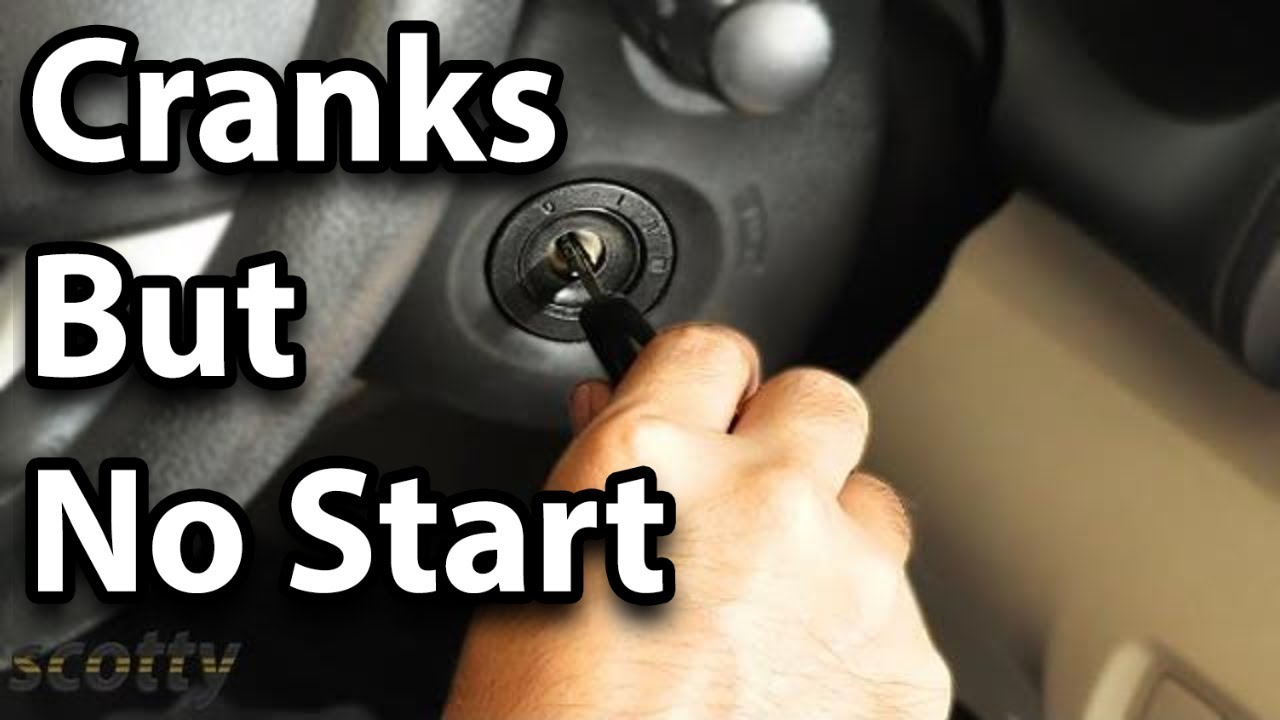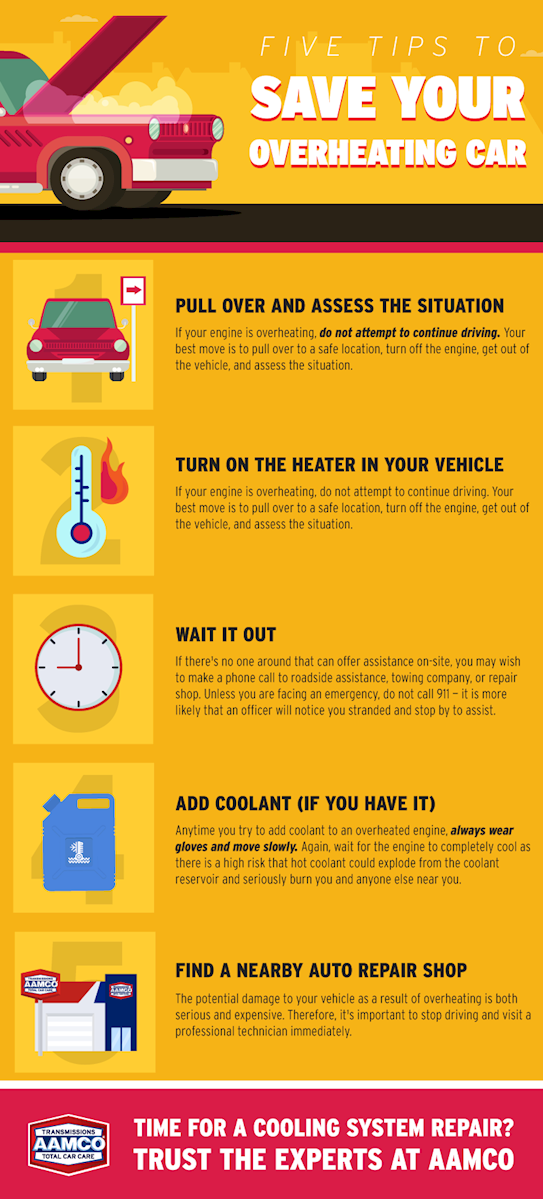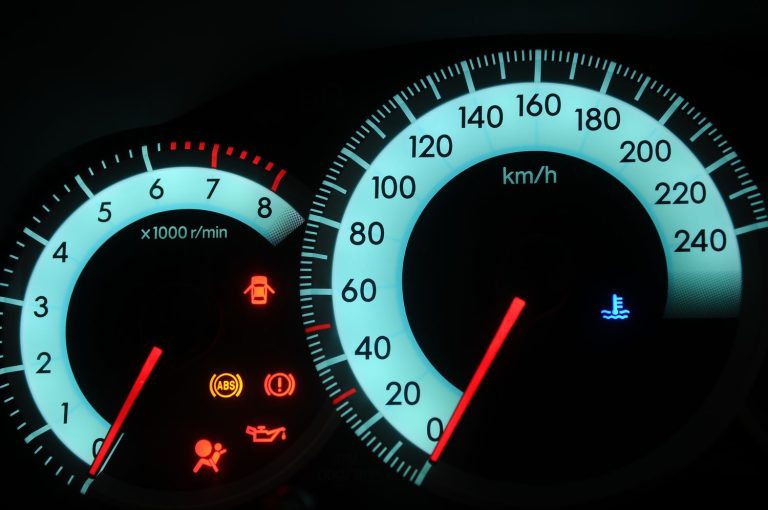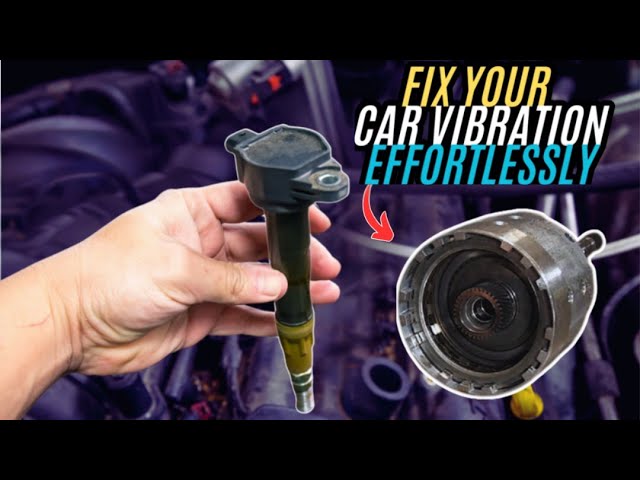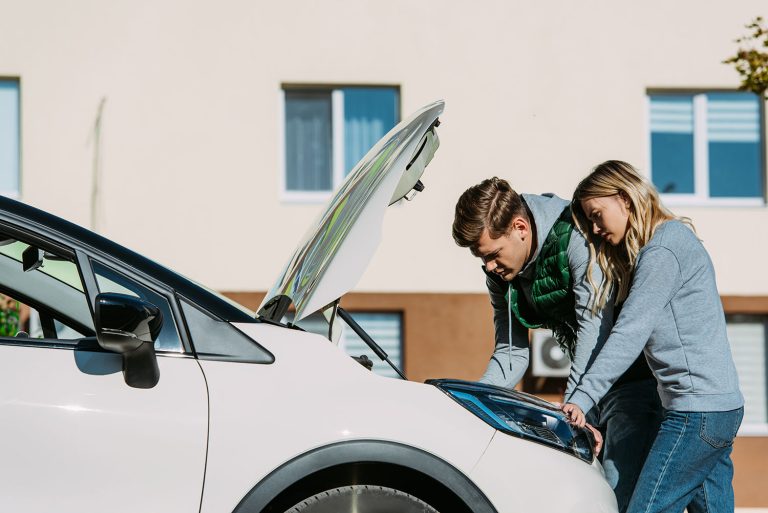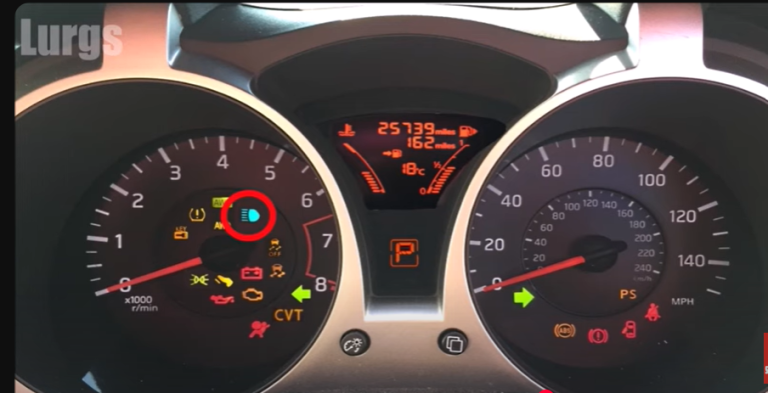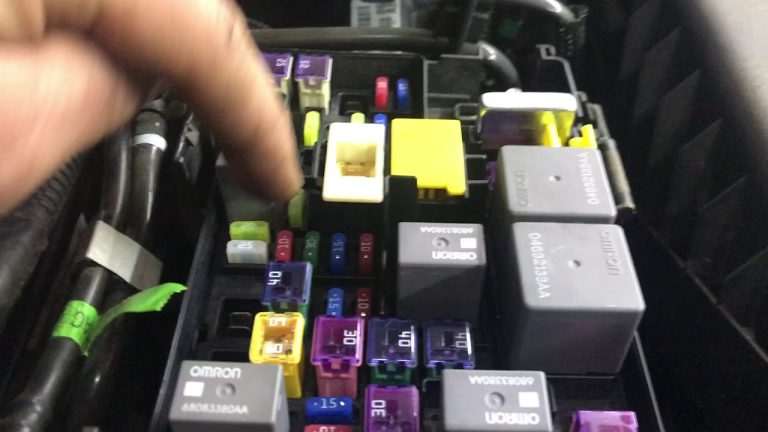Car Cranks But Does Not Start: Troubleshooting Guide
When your car cranks but doesn’t start, it means the engine turns over but fails to fire up. Common causes include a dead battery, faulty spark plugs, bad fuel pump, or ignition issues. Diagnosing the exact problem early can save time, money, and prevent further damage to your vehicle.
It’s frustrating, isn’t it? You’re left wondering what went wrong and how to fix it. This common issue can disrupt your plans and leave you feeling helpless. But don’t worry, you’re not alone. Many drivers face this problem, and there are solutions.
We’ll explore the reasons why your car might crank but not start, and guide you through simple steps to diagnose and resolve the issue. Whether it’s a minor glitch or a sign of something more serious, understanding what’s happening under the hood can save you time and money. So stick around, because getting back on the road might be easier than you think.

Credit: www.youtube.com
Car Cranks But Does Not Start
Common Causes
A car that cranks but won’t start often has issues with the fuel system, spark plugs, or battery. Faulty ignition coils or a clogged fuel filter may also be responsible. Identifying the root cause quickly is essential to fixing the problem efficiently.
When your car cranks but doesn’t start, it can be frustrating and puzzling. You’re ready to go, but your vehicle isn’t cooperating. Understanding the common causes can help you troubleshoot and possibly solve the issue. Let’s dive into what might be going wrong under the hood.
A weak or dead battery is often the culprit when your car cranks but won’t start. If you’ve left your lights on overnight or your battery is old, it might not provide enough power. Check your battery terminals for corrosion, as this can impede the flow of electricity.
Fuel is the lifeblood of your engine. If your car isn’t getting enough, it simply won’t start. Consider checking the fuel pump and fuel filter. A clogged filter can restrict the flow, leading to a crank with no start. Have you noticed any odd smells or leaks? They might signal a fuel system issue.
The ignition system sparks the fuel-air mixture in the engine. A faulty ignition switch or bad spark plugs can prevent your car from starting. Do you hear a clicking sound when you turn the key? It could be the ignition coil or spark plugs needing a check.
Read more: Honda Accord is Not Starting: Troubleshoot Now!
Starter Motor Issues
If the starter motor is malfunctioning, your engine won’t turn over. Listen for a clicking noise when you try to start the car. This sound often indicates a problem with the starter motor. Have you ever had to tap the starter to get your car going? That’s a sign it might be on its last legs.
Engine Timing
Engine timing must be precise for your car to start smoothly. If the timing belt is worn or broken, your engine can’t operate properly. You might not see immediate signs, but if your car cranks without starting, it’s worth checking the timing belt. Are you hearing unusual noises from the engine? Timing could be the issue.
Security System Malfunction
Modern cars have complex security systems. If the system doesn’t recognize your key, it might prevent the engine from starting. Have you recently changed your car key or had issues with the security settings? This can sometimes interfere with the start sequence.
Sensor Failures
Your car’s sensors play a crucial role in starting the engine. A faulty crankshaft position sensor, for instance, can prevent the car from starting. Notice any warning lights on your dashboard? They might point to sensor issues that need immediate attention.
When you face a car that cranks but won’t start, don’t jump to conclusions. Consider these common causes and examine each aspect carefully. What’s your next step in getting back on the road?
Battery Issues
Dealing with a car that cranks but doesn’t start can be frustrating. Often, the battery is the culprit. Understanding battery issues can help you fix the problem quickly. A car’s battery plays a vital role in powering the vehicle. When it fails, your car may crank but not start.
Low Battery Charge
A battery with a low charge can’t start the engine. Check the battery voltage using a voltmeter. A healthy battery should read around 12.6 volts. If it shows less, it might need charging or replacement. Ensure all electrical connections are secure and clean.
Corroded Battery Terminals
Corrosion on battery terminals can impede the flow of electricity. Inspect the terminals for white or greenish deposits. Clean them with a mixture of baking soda and water. Use a brush to scrub the terminals gently. Ensure they are dry before reconnecting.
Faulty Battery Cables
Damaged battery cables can prevent your car from starting. Look for cracks or wear on the cables. Replace damaged cables immediately. Check that all connections are tight and secure.
Old Or Weak Battery
Batteries lose their efficiency over time. If your battery is over three years old, it might be time for a replacement. A weak battery may struggle to hold a charge. This can lead to cranking issues.
Parasitic Battery Drain
Some components may drain the battery when the car is off. Check for lights or devices left on. Use a multimeter to identify the source of the drain. Disconnect the device or repair the issue to prevent future problems.
Read more: Honda Civic Won T Start But Has Power: Troubleshoot Now!
Fuel System Problems
When your car cranks but does not start, the fuel system could be the culprit. The fuel system is vital for engine operation. It delivers fuel from the tank to the engine. If any part of this system fails, your car may struggle to start. Let’s explore common fuel system problems.
Fuel Pump Issues
The fuel pump moves fuel from the tank to the engine. A faulty pump can disrupt this flow. Listen for a humming sound when you start the car. No sound might indicate pump failure. This can prevent fuel from reaching the engine, stopping it from starting.
Clogged Fuel Filter
Fuel filters keep debris out of the engine. Over time, they can become clogged. A clogged filter restricts fuel flow. This can cause the engine to crank but not start. Regularly replacing the filter can prevent this issue. Check your car’s manual for replacement guidelines.
Fuel Injector Problems
Fuel injectors spray fuel into the engine cylinders. If they malfunction, the engine may not get enough fuel. Dirty or clogged injectors can impair fuel delivery. Cleaning them can help restore proper function. Consider professional cleaning for severe cases.
Empty Fuel Tank
An empty tank might seem obvious, but it happens. Check your fuel gauge. Ensure there’s enough fuel for the engine to start. Sometimes, gauges can be faulty. Verify by adding fuel and trying again. This simple step can solve many start-up problems.

Credit: www.dubizzle.com
Ignition System Faults
The ignition system is crucial for starting your car. If the car cranks but does not start, it could be due to ignition system faults. These issues can disrupt the spark needed for the engine to fire up.
Faulty Spark Plugs
Spark plugs ignite the air-fuel mixture. Worn-out spark plugs can fail to create sparks. This results in the engine not starting. Regularly check and replace spark plugs for better performance.
Ignition Coil Problems
The ignition coil transforms battery voltage into a spark. A malfunctioning coil affects the spark generation. Without a spark, the engine cannot start. Ensure the ignition coil is functioning properly.
Damaged Ignition Wires
Ignition wires carry the spark from the coil to the plugs. Damaged wires can interrupt the spark transfer. This can prevent the engine from starting. Inspect wires for damage and replace them if needed.
Issues With Distributor Cap
The distributor cap directs current to the spark plugs. A damaged cap can misdirect the current flow. This can cause starting problems. Check the distributor cap for cracks or wear.
Malfunctioning Ignition Switch
The ignition switch sends power to the ignition system. A faulty switch can stop the power flow. This prevents the engine from starting. Test the switch to ensure it’s working correctly.
Starter Motor Troubles
Experiencing a car that cranks but does not start often points to starter motor troubles. This issue can stem from electrical faults or mechanical wear, causing frustration. Regular checks and timely maintenance can help avoid this common problem, ensuring smooth engine ignition.
When your car cranks but doesn’t start, it’s often linked to starter motor troubles. The starter motor is crucial for turning over the engine. Imagine trying to start your car on a chilly morning, only to hear it crank endlessly. Frustrating, right? Understanding starter motor issues can save you time and stress.
What Does The Starter Motor Do?
The starter motor is a small but powerful device. It initiates the engine’s rotation, allowing it to start. Without it, your car remains silent. Ever wondered what powers the starter motor? It’s the battery. So, if your car cranks but fails to start, the starter motor might be struggling.
Common Signs Of Starter Motor Problems
Starter motor issues can manifest in various ways. You might hear a clicking sound when you turn the key. Or maybe the engine cranks slowly. These are clear indicators of trouble. Have you noticed smoke coming from your engine? That’s a sign the starter motor is overheating.
Why Does The Starter Motor Fail?
Several factors can lead to starter motor failure. Age and wear are common culprits. Over time, parts wear out and connections corrode. Ever left your headlights on overnight? It drains the battery, straining the starter motor. Another reason could be a faulty ignition switch.
Steps To Diagnose Starter Motor Issues
You can diagnose starter motor problems with a few simple steps. Check the battery first. Ensure it’s fully charged and the connections are clean. Next, listen for unusual sounds when starting the car. If it clicks or grinds, the starter motor might be at fault. Have you tried tapping the starter lightly with a hammer? Sometimes, it temporarily solves the issue.
Practical Tips To Address Starter Motor Troubles
If your starter motor is failing, consider these tips. Regular maintenance goes a long way. Keep battery terminals clean and inspect wiring for damage. Replace worn-out parts promptly. If DIY isn’t your thing, consult a mechanic. They can test the starter motor’s health and guide you on replacements.
Personal Experience: A Starter Motor Journey
A few years ago, my car refused to start on a rainy day. I heard endless cranking but no ignition. After checking the battery, I realized the starter motor was the issue. A quick visit to the mechanic solved it. Reflecting on that day, I learned the importance of regular checks.
When dealing with starter motor troubles, remember: being proactive can prevent headaches down the road. Have you faced similar issues? Taking action now might save you from being stranded later.
Credit: www.tiktok.com
Frequently Asked Questions
What Does It Mean If A Car Cranks But Doesn’t Start?
A car that cranks but doesn’t start often faces fuel, spark, or air issues. Common causes include a dead battery, faulty ignition coil, clogged fuel filter, or a bad starter motor. Diagnosing these components can help identify the problem. Regular maintenance minimizes such issues, ensuring reliable car performance.
How Do You Diagnose A Crank No Start Condition?
To diagnose a crank no start condition, check the battery, fuel system, and ignition system. Use a scan tool to identify error codes. Inspect the starter motor and connections. Ensure proper engine compression. Verify the functionality of sensors like the crankshaft position sensor.
What To Do If Your Car Turns Over But Won’t Start?
Check the fuel level and battery connections. Inspect the ignition system and spark plugs. Examine the fuel pump and filter. Consider a faulty starter or alternator. Seek professional help if unsure.
Why Is My Car Not Turning Over But Has Power?
Your car might not turn over due to a faulty starter motor, bad ignition switch, or weak battery connections. Checking the starter, ignition, and ensuring tight battery connections can help diagnose the issue. If unsure, consult a professional mechanic for a thorough inspection.
Why Does My Car Crank But Not Start?
Your car might have fuel, spark, or electrical issues. Check battery, fuel pump, and ignition system for problems.
Conclusion
A car cranks but does not start can frustrate anyone. You now know the basics to tackle this issue. Check the battery and fuel first. Look at the spark plugs next. These simple checks often solve the problem. If the car still won’t start, seek professional help.
A mechanic can diagnose the issue. Regular maintenance prevents many of these problems. Keep your car in good shape. It saves time and money. Remember, understanding your car helps. You gain confidence in handling small issues. Stay informed, stay prepared.
Your car deserves your attention.

